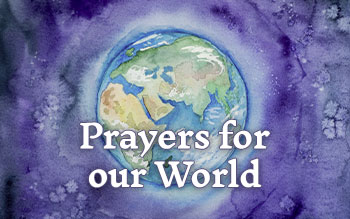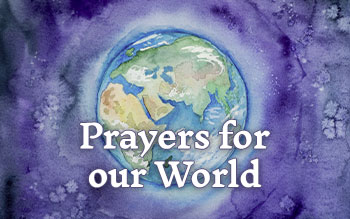Displaying items by tag: famine
Saudi Arabia recently reopened two key ports in Yemen. That won’t prevent a famine
For the past few weeks, Saudi Arabia has made it almost impossible to get food to Yemen, one of the poorest countries in the world. Yemen became an independent state in 1990, after gaining its sovereignty from The United Kingdom. The population of Yemen is 24,771,809 (2012). Yemen shares land borders with 2 countries: Saudi Arabia and Oman.
Yemen has been tiptoeing toward famine for the better part of three years. It's a man-made crisis born of immense political instability. (The country has been divided into pieces by warring factions backed by Saudi Arabia and Iran. Terrorist groups such as al-Qaeda control portions of land, too.) And it has been made worse by climate change, rendering a dry and arid country nearly devoid of usable land and clean water.
Eighty percent of the country's population lacks reliable access to food. (That includes around 11 million children; kids under 18 make up around half of the population.) Seven million people, one out of every four Yemenis, are entirely dependent on food assistance. The United Nations has called it the “worst humanitarian crisis in the world.”
Save the Children predicts that 50,000 Yemeni children under 5 will die by year end. That's a toddler dead every 10 minutes.
Yemen is on the brink of a horrible famine. Here’s how things got so bad.
For years, Saudi Arabia has played a dark role in Yemen's suffering. It backs the country's exiled government and has dropped thousands of bombs on military and civilian targets (including schools and hospitals) controlled by the Houthi rebels. (The United States has provided funding, logistical support and arms for this effort.) Nearly 10,000 Yemenis have been killed in the bombings.
In early November, things got worse. After the Houthis launched a missile into Saudi Arabia, the country retaliated with a near-total blockade of Yemen's seaports, airports and highways. This meant that aid groups could not ship in clean water, vital medication and food. Yemen imports at least 80 percent of its food, and the blockade pushed those 7 million people dependent on food assistance to the brink of famine.
Humanitarian groups condemned Saudi Arabia's action as inhumane. “I don't think there's any question the Saudi-led coalition, along with the Houthis and all of those involved, are using food as a weapon of war,” David Beasley, head of the United Nations' World Food Program, told CBS. “It's disgraceful.”
Finally, it seemed, there was a drop of good news. Last week, Saudi Arabia announced that it would partially lift its blockade, reopening airports and seaports controlled by its allies. Today, the Saudi-led coalition said it would allow aid deliveries to the rebel-held port of Hodeidah and Sanaa airport. That decision was set to kick in at noon Thursday. Jan Egeland, head of the Norwegian Refugee Council, wrote on Twitter that it was a “glimmer of hope.”
But aid groups say this new move, on its own, will do little to stem the impending crisis.
That's because aid groups alone simply can't get enough food, water and medicine into Yemen fast enough to feed and help the millions of people who need it. To stem a famine, USAID says, Yemen needs “large-scale imports of essential goods.” That means commercial shipments, not just supplies from the United Nations, which must go through rigorous inspections that slow delivery.
Yemenis need fuel, too, to power the water pumps that clean the country's water. Without it, diseases are spreading rapidly. Right now, the country is experiencing the worst cholera outbreak in history. Nearly 1 million people have been infected.
In a statement, International Rescue Committee Yemen country director Paolo Cernuschi explained that Saudi Arabia's latest effort isn't nearly enough.
“Even though tomorrow's reopening of ports to humanitarian traffic will ease the flow of aid, it will still leave the population of Yemen in a worse situation than they were two weeks ago before the blockade started,” he said. “Humanitarian aid alone cannot meet the needs of Yemenis who are unjustly bearing the brunt of this war. Access by commercial shipments of food and fuel must be resumed immediately, otherwise this action will do little to turn Yemen back from the brink of famine and crisis.”
The international community has also called on the United States to do more to end the Saudi blockade. But so far, the Trump administration has declined to publicly condemn the country's actions.
For a video overview of Yemen and its needs visit: http://prayercast.com/yemen.html
SPOTLIGHT: Critical situation in Yemen
We are focusing a special spotlight this month on the very needy Middle East country of Yemen. We would encourage our prayer partners to join with us as we intercede for the complex situation there.
Yemen, the birthplace of algebra, has a long history of trade in frankincense and myrrh and now makes most of its revenue exporting oil products. Yet it is sadly the poorest Arab nation and is currently facing the world’s largest humanitarian crisis. Decades of war and unrest have torn this nation apart, leaving it crippled by long-standing social, political, and economic instability.
Civilians have borne the brunt of the violence and suffering caused by the unravelling turmoil of civil war since 2012. This has left 80% of the population in need of some form of humanitarian assistance. Yemen’s hunger crisis is one of the worst in the world. Yemeni’s have also endured the devastation of widespread diseases such as cholera. With only 45% of hospitals functional, medications in short supply, and little to no clean drinking water, diseases that should be preventable and treatable have claimed the lives of thousands. The nation’s immense water shortage has only been made worse by the widespread use of the country’s most popular narcotic, qat, which demands approximately 40% of the nation’s supply. Terrorist and militant groups like Al-Qaeda, Islamic State, and the Houthis have taken advantage of the chaos and human suffering to gain territory and momentum.
- Pray for peace and for terrorist and militant groups to be disarmed.
- Pray for sufficient famine relief and medical aid to access all areas of the population in need.
- Pray for the Gospel to go forth in power despite current legal restrictions.
- Pray for freedom from the narcotic 'qat' that holds 80% of Yemeni adult’s captive.
- Pray for the desperate economic situation to ignite a longing for lasting hope and security.
For a video overview of Yemen and its needs visit: http://prayercast.com/yemen.html
East Africa: starvation in refugee camps
Famine continues, and refugee camps in Kenya and Uganda continue to fill. Church leaders in Uganda, Kenya and South Sudan have launched another desperate appeal for food aid to keep refugees and churchgoers alive until Christmas, after enduring an 18-month-long period of droughts, famine and conflict. Archbishop Stanley Ntagali of Uganda said, ‘The numbers and the need are overwhelming. I appeal to you all to help us so that we can help these helpless people, the refugees from South Sudan.’ The refugees, having fled famine and conflict in their homeland, are now living in Camp Rhino, northern Uganda. Most of their food aid is provided by Barnabas Fund, working through the Church of Uganda. Every day, 300 refugees from South Sudan arrive in the camp. The numbers have risen to 120,000, and are predicted to go even higher. A large proportion are women and children.
East Africa: food crisis
A missionary helping the 24 million people in East Africa dying of starvation has criticised the media for being so ‘distracted’ by Donald Trump that they're failing to notice the worst humanitarian crisis to hit the region since World War 2. Aid worker Paul Healy says that in his twenty years working with Trócaire, a charity set up by the Irish Catholic Church, he's never seen such devastation. ‘The scale of the crisis is enormous. There are 24 million people facing starvation over the coming months,’ he said. The UN has already declared a fully-fledged famine in parts of South Sudan, adding: ‘This means 20% of households face extreme food shortages, 30% of the population face acute malnourishment and there are 2 hunger-related deaths per 10,000 people per day.’. Also Somalia, Kenya and Ethiopia will suffer mass death from food and water shortages if ‘prompt and sustained humanitarian intervention’ doesn't happen soon.
Global: 20 million close to starvation
In February Prayer Alert readers were told of 1.4 million children at risk of starvation in Yemen, South Sudan, Somalia, and northeast Nigeria. The crisis has worsened. Millions of people are caught in conflicts within their countries. Livelihoods are disrupted, and they cannot produce food. This is a God-sized situation that requires intercession and His intervention. The UN needs $4.4 billion by July to prevent famine in these countries. An official said the organisation is facing its largest humanitarian crisis since its creation. Without the funding and collective and coordinated global efforts, people will simply starve to death. Yemen's needs are the most critical: two-thirds of the population (19 million) need assistance. In South Sudan, 7.5 million need help. In Somalia and northeastern Nigeria there is also severe food insecurity because of violence and instability. See also
Middle East: seismic shifts and fresh persecution
The fighting in Syria grows more complex as Turkey aims to interrupt the line of territory held by Kurdish forces along its border and the US works with the Kurds to prevent battle escalation and focus on IS. Pray for this tense situation where Turkish and US goals are in disagreement. Pray also for the third round of peace talks sponsored by Russia and Turkey that began on 14 March. In Iraq, the campaign to retake Mosul from IS progresses despite fierce resistance. Iraqi commanders are hopeful they can overcome IS within six months. Many civilians have been prevented from fleeing by IS, and horrific sites of mass burials have been uncovered in captured areas. Pray for the future for Mosul, for peace-building and reconstruction to be given as much thought as the current military campaign. The two-year conflict in Yemen has killed 7,700 people, including 1,500 children. The fallout is that over 18 million people need food aid.
South Sudan bishops (2): famine ‘man-made’
South Sudan’s Catholic bishops have issued a pastoral letter condemning the civil war and labelling the famine ‘man-made’. The document responds to reports from all seven dioceses. They denounce government and opposition violence against civilians. ‘The killing, torturing and raping of civilians is a war crime. We want the world to hear the true situation in which our people find themselves. Our country is gripped by a humanitarian crisis - famine, economic hardship, and insecurity. Our people are struggling simply to survive.’ The bishops tell how people have been herded into their houses which were then set on fire, and recount atrocities of bodies dumped in sewage-filled septic tanks. They said, ‘People live in fear. While food shortages are partly related to poor rains, it is violence and a plummeting economy that are pushing the population over the edge into famine’.
Global: 1.4 million children at risk of starvation
It has been six years since the world had a famine, but now UNICEF report that nearly 1.4 million children are at ‘imminent risk’ of death from famines in Nigeria, Somalia, South Sudan and Yemen. The World Food Programme says over 20 million lives are at risk in the next six months. Time is running out. Famine was formally declared on Monday in parts of South Sudan, mired in civil war since 2013. The conflict has split the country along ethnic lines, leading the UN to warn of potential genocide. South Sudan has also been hit by the same east African drought as Somalia, where six years ago 260,000 people starved to death. A World Food Programme report said, ‘By 2050, climate change and erratic weather patterns will have pushed another 24 million children into hunger. Almost half of these children will live in sub-Saharan Africa.







